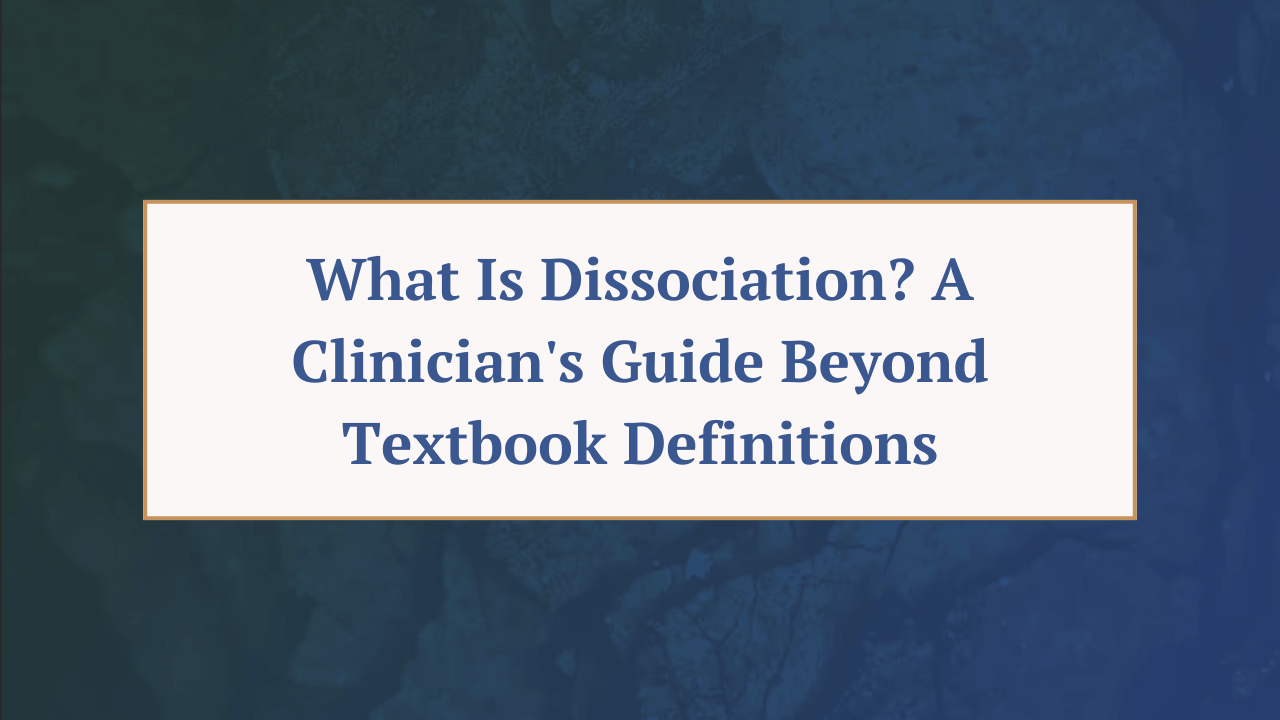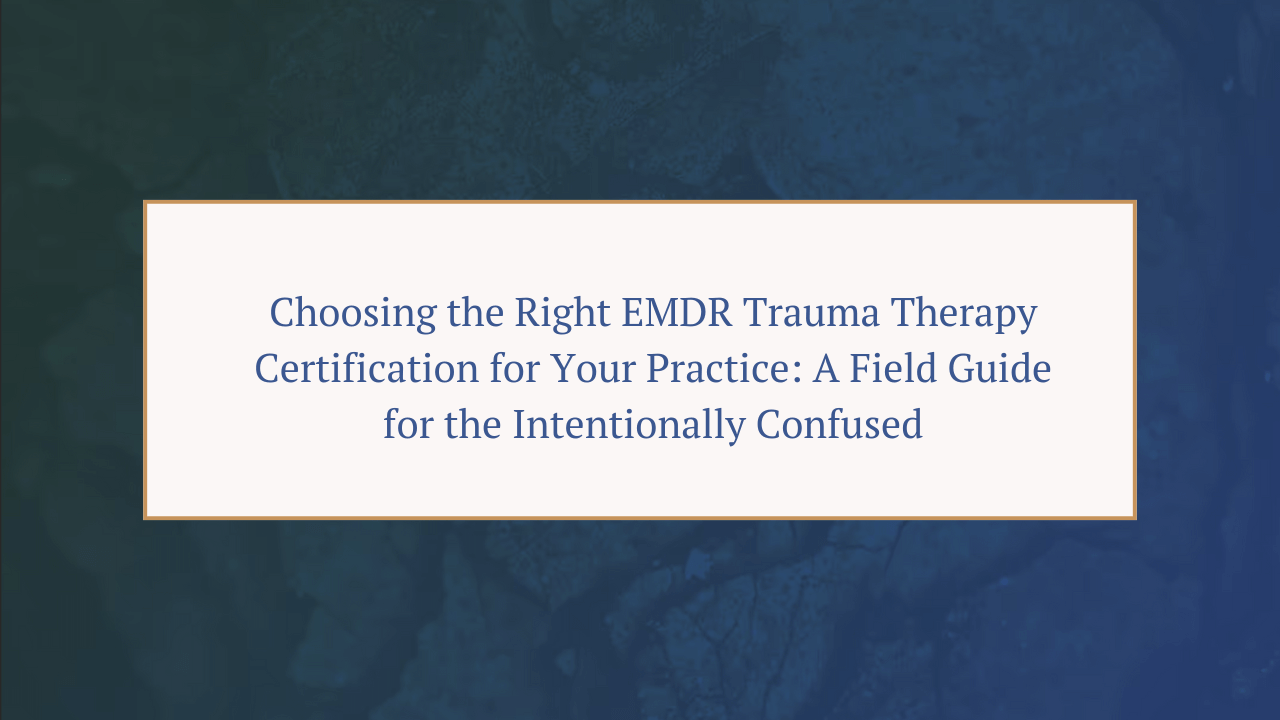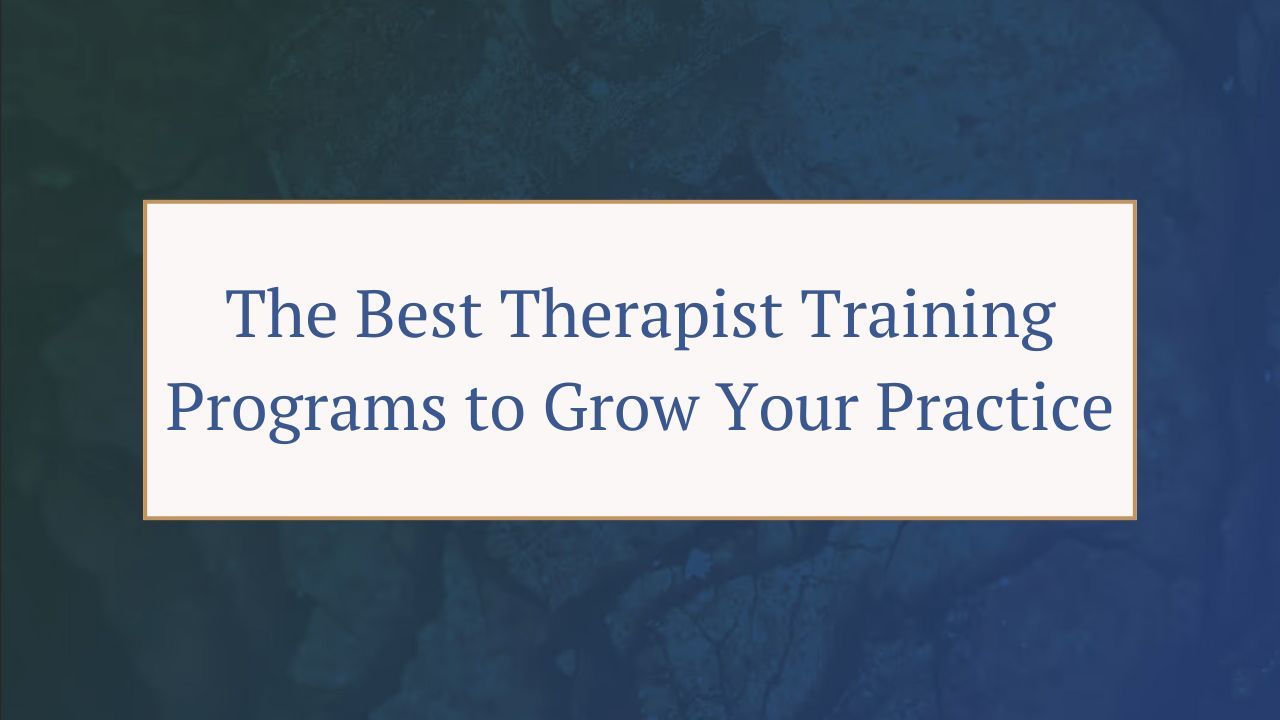Comprehensive Online Trauma Healing Workshops
May 23, 2025
Trauma can strike anyone, leaving deep scars that affect mental health and daily functioning. Understanding its complex nature and the various strategies for healing is crucial in our fast-paced world. This is where comprehensive online trauma healing workshops come into play, providing essential tools and techniques for recovery.
These workshops delve into the multifaceted aspects of trauma, offering insights into trauma-informed care, managing severe cases, and effectively treating PTSD and childhood trauma. By exploring the link between trauma and mental health, they address related conditions like depression, anxiety, and burnout.
The flexibility of online sessions makes trauma healing more accessible, offering on-demand training, self-paced learning, public sessions, and private coaching. This article dives into the benefits, components, and accessibility of online trauma healing workshops, guiding you through an effective path to recovery.
Understanding Trauma and Its Impact
Understanding trauma and its profound impact on mental health is crucial for effective intervention and support. Many adults' mental health issues can be traced back to traumatic events experienced during childhood. Fortunately, various online trauma training and resources are available to address these challenges and promote mental wellness.
These e-learning courses provide insights into different trauma types, including:
- Community Violence
- Historical Trauma
- Medical Trauma
- Race-Based Trauma
- Violent Incidents
Organizations like the National Child Traumatic Stress Network (NCTSN) offer online courses. These courses enhance trauma understanding and encourage evidence-based practices for handling trauma scenarios.
For mental health professionals and social workers, training options are flexible, including self-paced modules and instructor-led sessions. This adaptability ensures that professionals can balance their schedules while accessing essential skills to address trauma's impact.
Moreover, comprehensive courses often exceed standard workplace training requirements, emphasizing in-depth skills necessary for those focusing on mental health treatment and wellness.
Overall, these resources are vital in equipping professionals to support individuals with mental health conditions and those dealing with intellectual and developmental disabilities, ultimately fostering a trauma-informed approach to care.
Key Components of Trauma Healing Workshops
Trauma healing workshops play a critical role in promoting recovery and understanding from trauma experiences. These workshops offer courses that address a comprehensive range of trauma types, from bullying and early childhood trauma to physical abuse. Utilizing e-learning platforms, they provide both introductory and advanced learning tailored to various professional audiences, including healthcare and mental health professionals. Through structured courses like trauma-informed care webinars and interactive learning segments, these workshops lay the foundation for understanding trauma. Facilitators, who are experienced professionals from diverse fields, ensure that the participants gain practical and engaging learning experiences. The workshops often incorporate interdisciplinary perspectives, fostering skills to address trauma in different contexts, from community violence to historical trauma, thereby equipping individuals with the necessary tools to handle various traumatic situations effectively.
Trauma-Informed Care
Trauma-Informed Care is an essential approach in understanding the impact of trauma on individuals, aiming to cultivate environments that foster recovery and healing. Courses in this domain vary in complexity, catering to both beginners and advanced learners. A prime example is the Introduction to Trauma-Informed Care course, which educates participants on the historical context and benefits of adopting trauma-informed practices. Additionally, a trauma-informed workplace assessment provides organizations with valuable insights into their current practices, suggesting ways to better align with trauma-informed standards, ultimately leading to improved support and environments for individuals affected by trauma.
Addressing Childhood Trauma
Addressing childhood trauma is crucial for fostering healing in affected individuals. Online courses focus on understanding and treating childhood trauma through therapeutic approaches like play therapy and parent-child interaction therapy. These educational programs offer valuable insights into the effects of childhood abuse on mental health and provide effective management strategies for these impacts. Tailored for diverse professional audiences, childhood trauma workshops equip participants with the skills necessary to support traumatized children from a trauma-informed perspective. Recognizing symptoms and implementing appropriate interventions are vital discussions in trauma-related courses, emphasizing their significance. Additionally, certain courses offer completion certificates, highlighting the importance of formal training in handling childhood trauma with sensitivity and competence, ensuring that professionals are well-prepared to aid children in overcoming their traumatic experiences.
Connection Between Trauma and Mental Health
The connection between trauma and mental health is profound and complex. Many mental health issues in adults can originate from traumatic events experienced during childhood, often referred to as the roots of various psychological conditions. Trauma can manifest at both the individual and community levels, necessitating empowerment and resilience-building to foster recovery. Understanding trauma involves recognizing its various forms, such as complex trauma, intimate partner violence, and historical trauma, all of which significantly impact mental well-being. To equip professionals with the necessary skills to address these issues, the Trauma Therapist Institute offers e-learning courses that delve into trauma's broad effects on mental health. Incorporating evidence-based treatments and trauma-informed care practices in organizations is essential to support those affected by trauma, promoting healthier mental health environments.
Depression and Burnout
An in-depth understanding of trauma is instrumental in comprehending the often-overlooked links between hidden trauma and resultant conditions such as depression and burnout. Unresolved trauma can be a silent contributor to depression and burnout, manifesting in persistent emotional and physical symptoms over time. Courses dedicated to trauma can be invaluable, providing clear insights into how life changes, such as depression, can be rooted in the triggers and responses associated with untreated trauma. This knowledge is particularly beneficial for fields like social work and counseling, where professionals frequently encounter cases of depression and burnout. By investing in trauma-informed education, these professionals can gain a deeper understanding of complex reactions tied to mental health challenges, enhancing their ability to support those affected effectively. Through comprehensive online trauma care courses, participants can grasp the multifaceted nature of stress responses, offering new perspectives in managing mental health challenges like depression.
Anxiety Disorders
Understanding trauma is also crucial in addressing anxiety disorders, as it provides insights into how trauma can exacerbate or initiate such conditions. These educational tools are designed to equip individuals and professionals with strategies to manage and alleviate anxiety symptoms through trauma awareness. Additionally, the Trauma Therapist Institute presents courses that may include components beneficial for both understanding and addressing anxiety disorders. Moreover, culturally diverse training programs offer generalized education applicable to managing anxiety disorders across varied communities. Through comprehensive online trauma healing workshops, mental health professionals can gain valuable insights into anxiety disorders, enhancing their ability to provide informed care across different fields and populations.
Learning Formats and Accessibility
In an increasingly digital world, access to quality education has never been more crucial. Trauma classes available online serve as a lifeline for diverse audiences by offering content in multiple languages, making trauma healing workshops accessible to people from various backgrounds. These workshops cover a wide range of trauma types, from intimate partner violence to historical trauma, thus providing relevant and thorough information tailored to different needs. Designed with flexibility in mind, these programs accommodate everyone from mental health professionals and healthcare providers to school personnel, offering both introductory and advanced learning opportunities. The addition of downloadable journals and reflection materials enriches the learning experience, allowing for deeper engagement.
On-Demand Training
On-demand training is an essential component of modern education, providing flexibility and convenience. These trauma healing workshops are designed to cater to specific professional groups such as child welfare professionals, healthcare providers, and mental health professionals. By focusing on different types of trauma—like bullying, community violence, and historical trauma—these courses ensure that each participant gains practical and relevant insights. One notable example is the Healing the Wounded Heart Online Course, which offers a series of sessions, including video interviews with survivors. Interactive elements like videos and downloadable resources enhance the learning experience and keep participants actively engaged. Upon registration, participants receive quick confirmation and login details, allowing them to dive into the courses’ comprehensive content, which often includes various credit hours necessary for professional development.
Public Training Sessions
Public training sessions provide a versatile learning environment for individuals across various professions. These sessions are available in different formats, allowing participants to select their preferred method of learning. Whether you're a healthcare provider or a mental health professional, these courses offer tailored introductory and advanced options to fit your specific developmental needs. Crafted with the goal of creating a trauma-informed world, these trainings delve into trauma, promote mental health, and help develop counseling skills. Moreover, many resources and training sessions are freely available, including e-learning courses, webinars, and resource guides, all of which aim to enhance professional growth and an understanding of trauma.
Benefits of Online Trauma Healing Workshops
Online trauma healing workshops are transforming the landscape of mental health care by providing critical insights into trauma recovery and offering accessible flexible training options to those affected by or working with trauma. These workshops are meticulously crafted to deliver a structured and holistic learning experience. Led by renowned professionals such as Rebecca Kase, these courses delve into the intricacies of trauma recovery, equipping participants with essential skills and knowledge. They feature a combination of expert teachings, survivor interviews, and downloadable resources, making the learning experience both engaging and comprehensive. Participants benefit from flexible scheduling options, allowing them to fit the sessions into their existing routines. Furthermore, the use of varied learning tools such as self-paced modules, videos, and webinars promotes an in-depth understanding of trauma-informed care, making these workshops suitable for a diverse audience including social workers, mental health clinicians, and other mental health professionals.
Flexibility and Convenience
The flexibility and convenience of online trauma healing workshops are among their most appealing attributes. These courses are designed to accommodate the busy schedules of professionals and individuals, providing a learning environment that can be adapted to individual needs. Many workshops include downloadable journals, promoting personal reflection and growth. Additionally, participants can access multiple sessions and resources at their own pace, choosing when and how they engage with the content. Self-paced online courses are known to promote greater learning since there is less pressure. This allows learners to explore materials comprehensively without the pressure of a fixed schedule, which is ideal for those juggling various commitments. Moreover, the availability of materials in multiple languages makes these courses accessible to a global audience, ensuring that language barriers do not hinder the learning process. By offering recorded online training sessions, participants have the opportunity to revisit content, ensuring that they absorb and understand all aspects of the training fully.
Diverse Learning Resources
Online trauma healing workshops offer an extensive range of learning resources tailored to meet the diverse needs of various audiences. These resources encompass various trauma types, including bullying, intimate partner violence, and race-based trauma, allowing learners to specialize in areas that are most relevant to their professional or personal interests. The courses cater to a wide range of professional audiences, from child welfare professionals to teachers and media personnel, providing introductory to advanced levels of training. This ensures that both newcomers and experienced individuals in the field can benefit from the resources available.
Formats include webinars, podcasts, and downloadable content, offering learners the flexibility to choose how they engage with the material. By addressing different learning preferences, these resources enable participants to gain a well-rounded understanding of trauma-informed care practices, ultimately enhancing their ability to support those affected by trauma in diverse professional and personal settings.
Stay connected with fun info, news, promotions and updates!
Join our mailing list to receive the latest news and updates from our team.
Don't worry, your information will not be shared.





